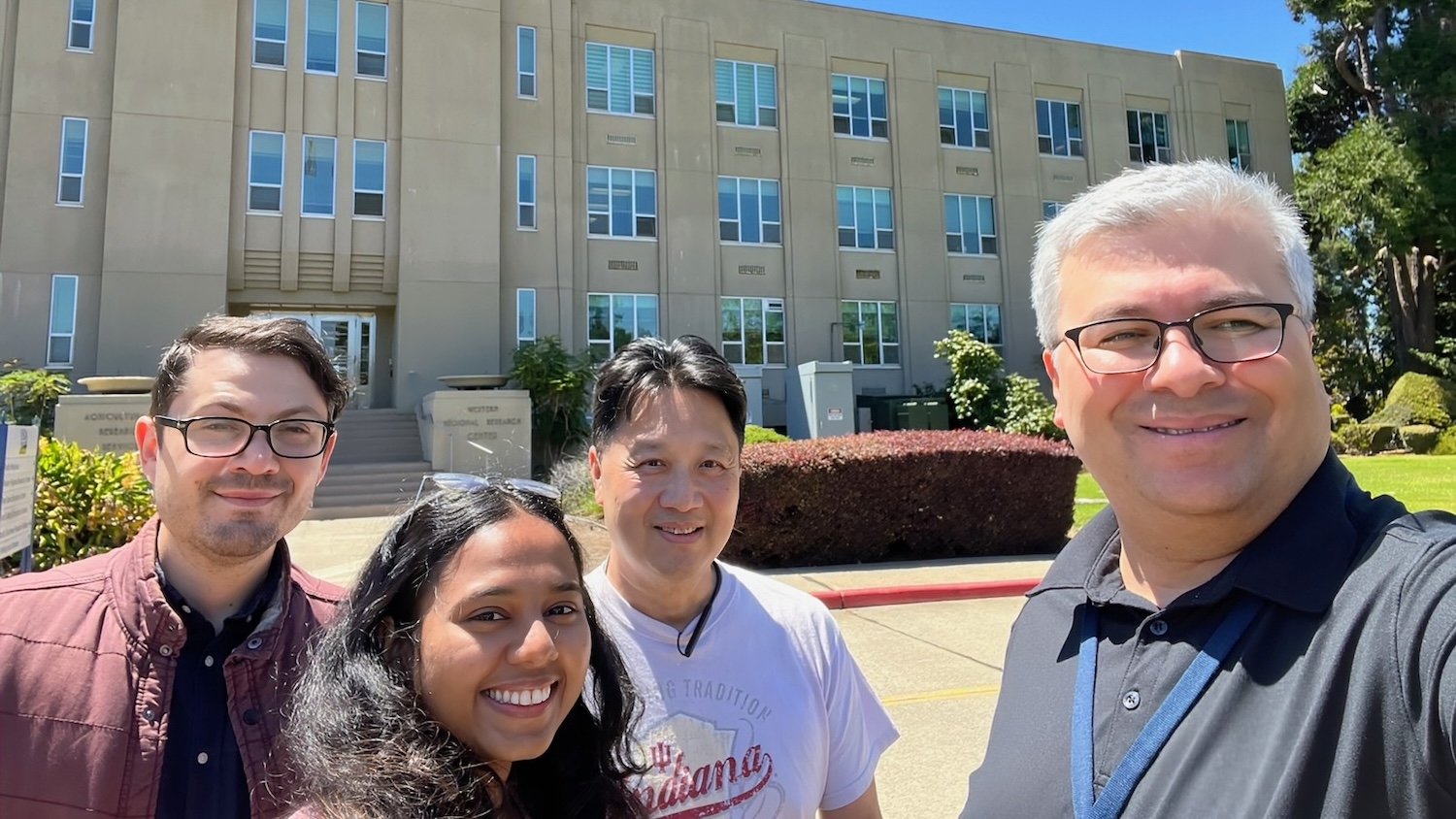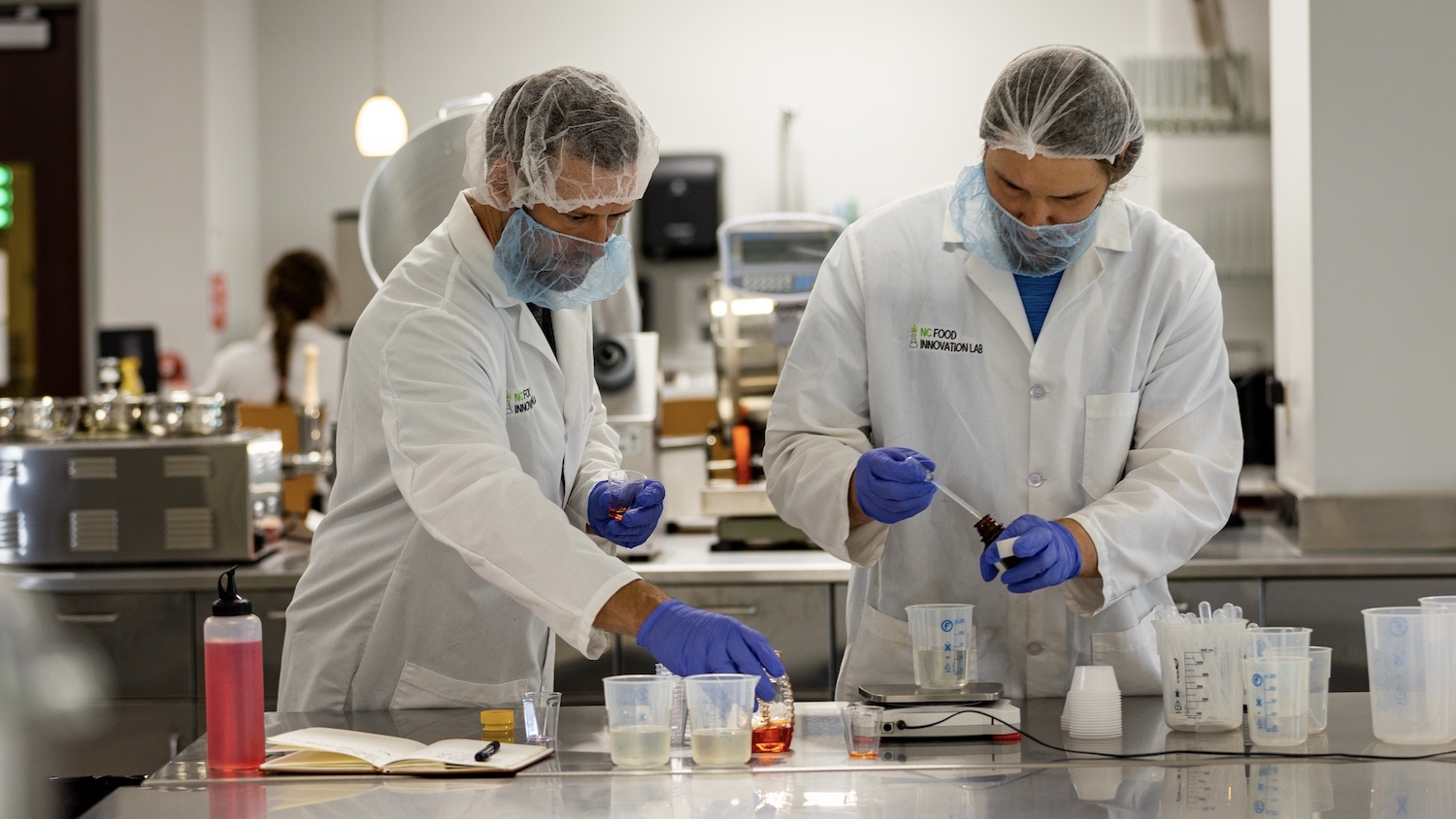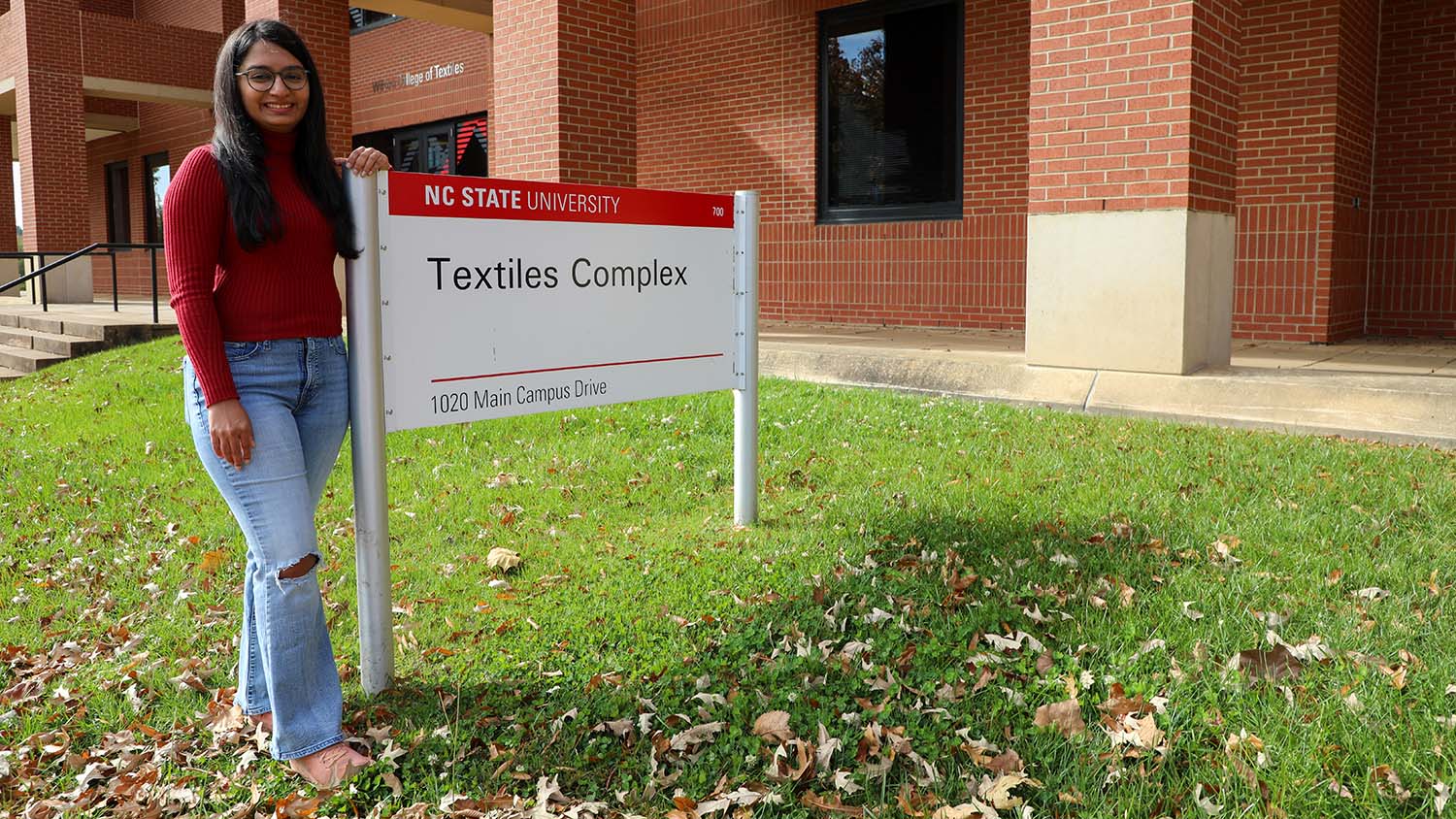For Neha Jagtap, a recent internship with leading national scientists proved to be a rewarding chance to gain experience solving a real-world agricultural challenge with knowledge she’s gained from computer science courses at North Carolina State University.
Neha was among five North Carolina State University graduate students who participated in a U.S. Department of Agriculture’s Agricultural Research Service Artificial Intelligence Center of Excellence and SCINet Internship this summer.
In all, 29 students affiliated with six institutions, including the N.C. Plant Sciences Initiative, took part.
Bringing tech skills to bear on agricultural research
Through the internship, graduate students with strong skills in data science, computer science, and related fields contributed to ARS research teams working on data-intensive agricultural research problems.
Using computer technology and data science to advance agriculture is among the N.C. PSI’s emerging strengths and one of the reasons why it partnered with USDA ARS on the internship program, says Terri Long, an NC State professor of plant and microbial biology and N.C. PSI’s platform director for education and workforce development.
“Such immersive experiences allow students to gain professional skills, build their personal networks and increase their understanding of possible career paths. In some cases students are able to publish their work, and some even receive job offers to continue working with ARS after the completion of the internship,” Long says.
The 10-week USDA ARS opportunity is among several N.C. PSI-facilitated opportunities available to students at NC State.
NC State’s other USDA ARS AI interns

For the USDA ARS internships, NC State students spread out across the United States to conduct research with leading agricultural scientists.
In addition to Jagtap, the NC State students were:
- Russell Kibbe, a Ph.D. student in the Department of Chemistry, whose project “Machine Learning-Assisted Detection of Drought Stress in Crops With Leaf-Level Hyperspectral Reflectance,” was conducted with Christine Chang in Beltsville, Maryland. Kibbe says his experience was rewarding because he got to work on developing skills in data science and machine learning, collaborated with experts, and completed agricultural research. Through the internship, he was able to help researchers in their efforts to efficiently and accurately identify drought stress to preserve yields for economically important crops such as cotton and soybeans.
- Cole Dickerson, a Ph.D. student in the Department of Electrical and Computer Engineering. He conducted his project, “Predicting Sweetpotato Yields Using Machine Learning and UAV-Based Multispectral Imagery,” with Yanbo Huang of Mississippi State University.
- Alex Raposo, a Ph.D. student in the Department of Computer Science, whose project, “Merging Nutrition Datasets Using Natural Learning Processing,” was conducted with Danielle Lemay at the University of California, Davis.
- Somshubhra Roy, a Ph.D. student in the Department of Electrical and Computer Engineering, who conducted his project, “From Petals to Pixels: Zero-Shot Segmentation and Synthetic Generation of Alfalfa Blossoms with Grounding DINO, SAM and Advanced Generative Models,” with Zhanyou Xu at the University of Minnesota.
Jagtap’s Experience: “Incredibly Meaningful”
Neha Jagtap, who’s pursuing a master’s degree with NC State’s Department of Computer Science, worked with Taner Sen in Albany, California, to help develop the GrainGenes Team’s BrAPI Search Tool.
The tool designed to serve as a centralized data repository for small grains researchers. Right now, vast genomic information about small grains is now dispersed across various computer systems, Neha says.
“Researchers often need to manually search through multiple databases. Our tool streamlines this process by enabling efficient, centralized searches,” she says.
Jagtap was attracted to the project because it allowed her to apply her technical skills to have an impact on data accessibility and research efficiency.
“The internship was incredibly meaningful. It not only strengthened my technical abilities but also broadened my understanding of both the agricultural and technology sectors,” she says. “I gained valuable skills in problem-solving, strategic thinking, and project execution — skills that will be crucial in my future professional endeavors.”
This post was originally published in Plant Sciences Initiative.
- Categories:



